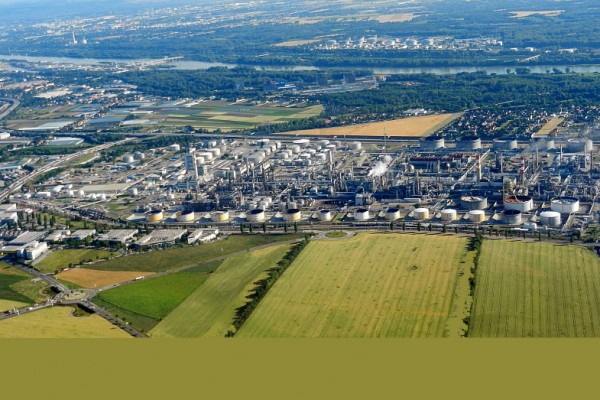EU Oil Embargo: Little Impact on Austria's Economy Expected
The planned EU embargo on Russian oil in response to the war of aggression in Ukraine will have far-reaching consequences for Europe. This is also the case for Austria. In a report, the Austrian National Bank examines the impact on the Austrian economy and forecasts comparatively mild effects. Nevertheless, the embargo conceals a number of risks that could also have a serious impact on Austria.
 Austria's economy is likely to suffer minor consequences in the event of an exit from Russian gas. / Picture: © Wikimedia Commons / Waerfelu [CC BY-SA 3.0 (https://creativecommons.org/licenses/by-sa/3.0)]
Austria's economy is likely to suffer minor consequences in the event of an exit from Russian gas. / Picture: © Wikimedia Commons / Waerfelu [CC BY-SA 3.0 (https://creativecommons.org/licenses/by-sa/3.0)]
In a report published by the Austrian National Bank (OeNB), the organization tries to estimate how much Austria's economy will be damaged under the planned embargoes on Russian oil and oil products and how inflation in Austria will develop in the coming years.
The background to this is the sixth EU sanctions package presented on May 4, which envisages an embargo on Russian crude oil and Russian petroleum products as a central point. This is to be implemented gradually by the end of 2022, but a final agreement has so far failed due to Hungary's lack of consent.
In principle, it should be noted that Austria's direct dependence on Russian oil supplies is very low. Nevertheless, a certain indirect dependence via processed oil products cannot be dismissed, as well as a risk that Austria's far more relevant oil imports from Kazakhstan could be affected, as these are transported via Russia.
In its forecasts, the OeNB assumes that the embargo will primarily affect the Austrian economy via expected price increases on global crude oil markets.
Due to a drastic decline in Russian crude oil on the world market (to the expected extent of 50% of total Russian crude oil exports), oil prices are expected to rise by 15% to 23%. The calculations assume a full embargo from mid-2022, and the effects on oil prices are assumed to gradually decrease over time.
The impact of the embargo announcement so far on oil production in Russia and oil exports to Europe is not clear. According to the IEA,3 as of April 2022, Russia's oil production is nearly one million barrels, or about ten percent, below its level before the war began. In addition, oil production from OPEC+ countries in the Middle East as well as the U.S. is expected to compensate for the decline in Russian oil for the time being.
Direct dependence on Russian oil low
Similar to natural gas, only a small part of Austria's domestic consumption of crude oil and downstream products is provided by domestic production, the majority is imported. Produced or imported crude oil is further processed at the Schwechat refinery, but at the same time fuels such as gasoline and diesel are imported directly.
The main use of the products produced with crude oil is in transport. In this respect, oil outages have a different impact than natural gas outages. The outage would primarily affect the traffic sector and thus the transport sector and thus fuel the supply bottlenecks, as many products could no longer be transported.
While Austria's direct dependence on Russian oil supplies is low, its indirect dependence is far greater. Kazakh crude oil is transported via the CPC pipeline, which runs north from the Caspian Sea and subsequently through Russian territory, to Novorossiysk, where it is shipped to this Russian port on the Black Sea.
Should there be a further escalation of the conflict between Russia and Europe in the course of an oil embargo, effects on these deliveries could not be ruled out.



